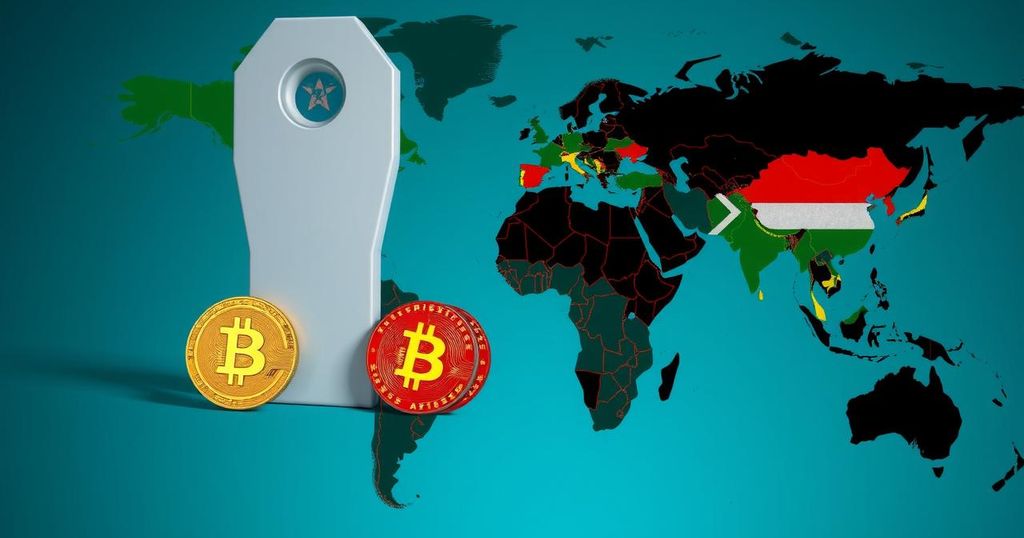Nigeria and South Africa: Leaders in Global Digital Currency Ownership

Nigeria and South Africa lead globally in digital asset ownership, with 99% and 68% of respondents aware of digital currencies respectively. A report by Consensys finds that 77% of Nigerians and 22% of South Africans possess thorough understanding of these assets. High ownership correlates with distrust in the banking system, prompting interests in decentralization and control over digital identities, despite concerns over volatility and security.
Nigeria and South Africa have emerged as the frontrunners in global digital asset ownership, according to a recent report by the blockchain incubator, Consensys. The Web3 Perception report indicates that an impressive 99% of Nigerians are aware of digital assets, with 77% possessing a comprehensive understanding of what they entail. This contrasts sharply with awareness levels in major economies such as the United States and the United Kingdom, where only 54% and 45% of respondents, respectively, exhibit similar understanding. Furthermore, Nigeria ranks high in digital asset ownership, with 74% of those aware reporting previous ownership, while 42% currently retain such assets.
In South Africa, 68% of respondents have owned digital assets, although only 22% maintain such ownership presently. Additionally, approximately 50% of South Africans are familiar with Web3 technologies and non-fungible tokens (NFTs). The significant prevalence of digital assets in these two nations is correlated with a widespread distrust in the banking system. In South Africa, 65% of participants believe the financial system requires reform, whereas a staggering 90% of Nigerians express dissatisfaction with their banking institutions.
Beyond their use in transactions, Nigerians are advocating for the utilization of digital assets and blockchain technology as a means of gaining autonomy over their digital identities. Joseph Lubin, CEO of Consensys, remarked, “In terms of data privacy, 92 percent of Nigerians and 87 percent would like to have more control over their identity on the internet, while over half of respondents think that decentralization could improve traditional banking and social media platforms.”
Despite Nigeria’s impressive record in digital asset adoption, which includes ranking second globally, concerns persist. A noteworthy percentage cite volatility, scams, privacy, and security as significant obstacles to broader engagement with digital currencies. The findings underscore a pressing need for enhanced security measures within the evolving landscape of digital finance.
The report from Consensys highlights the growing trend of digital asset ownership in Nigeria and South Africa, reflecting a wider interest in blockchain and cryptocurrency solutions within these nations. As traditional banking systems face increasing scrutiny and distrust, citizens are gravitating towards decentralized financial solutions, utilizing digital assets not just for investment but also for enhancing personal data control. The technological landscape is continuously evolving, enabling individuals to engage more comprehensively with their financial identities, particularly in regions where economic apprehensions persist.
In conclusion, Nigeria and South Africa’s prominence in global digital currency ownership signals a transformative shift towards alternative financial systems amidst widespread lack of confidence in traditional banking. The data underscores a distinct movement towards improved data privacy and control among citizens, particularly in Nigeria, where the majority seek decentralization to enhance their financial and social interactions. As these countries continue to adapt and embrace blockchain technology, addressing the concerns surrounding volatility and security will be critical for sustaining growth in the digital asset sector.
Original Source: coingeek.com








